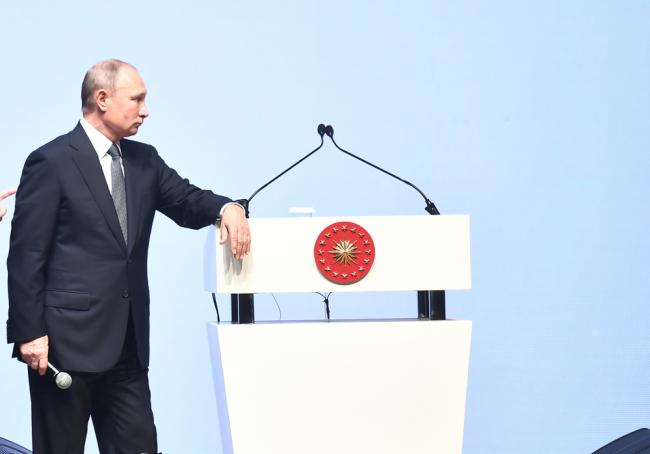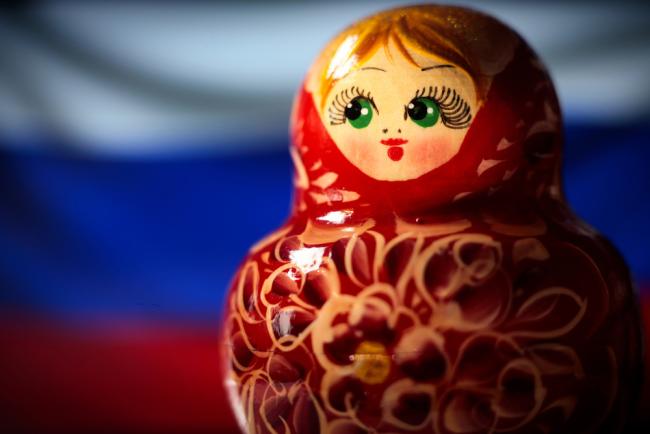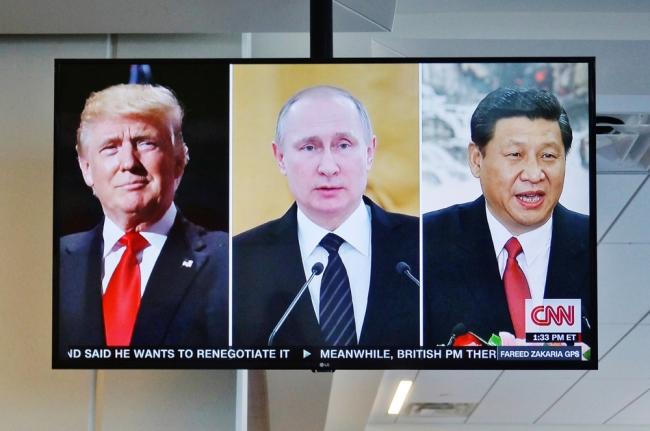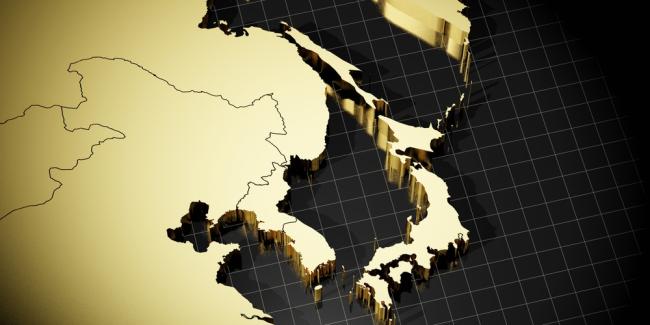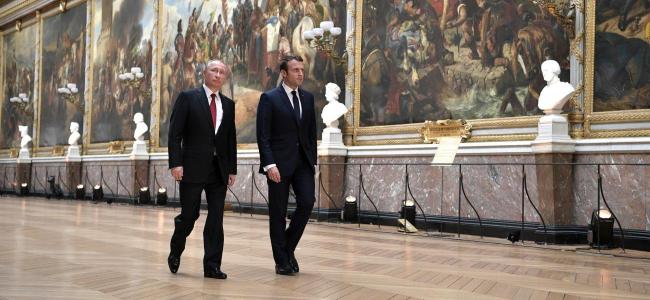Dialogue with Russia. Russia Needs to Reset Relations with the West
This report analyses Western-Russian relations and proposes a way forward for conducting dialogue with Russia. It offers an analysis of Russia’s relations with NATO and the EU, an overview of the bilateral relations of various Western countries with Russia, a glimpse of China’s role, and an assessment of the main interests and contentious issues in Western-Russian relations.
Russia and Turkey. Strategic Partners and Rivals
The extraordinarily troublesome year 2020 tested many international institutions and bilateral ties, but few experienced sharper challenges than the complex relations between Russia and Turkey, which have a strong impact on crisis developments in Europe’s immediate neighborhood.
Russia’s Niche Soft Power: Sources, Targets and Channels of Influence
This paper argues that Russia’s soft power should be understood as a niche soft power, microtargeting some specific audiences based on four particularisms:
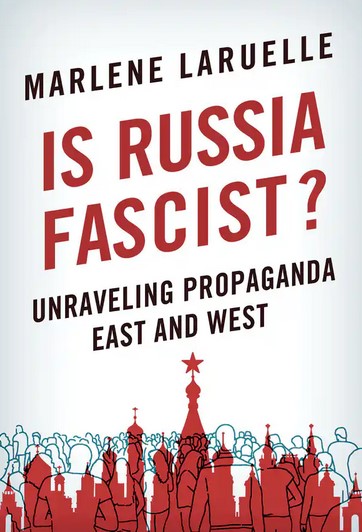
Is Russia Fascist? Unraveling Propaganda East and West
The charge of "fascism" has become a strategic narrative of the current world order.
Russian Private Military Contractors in Sub-Saharan Africa: Strengths, Limitations and Implications
Since 2014, Russia has notably intensified its policies in Africa, joining the race for local markets and opportunities presented by the rapidly growing and transforming continent.
Global Order in the Shadow of the Coronavirus: China, Russia and the West
The coronavirus pandemic has thrown a harsh spotlight on the state of global governance. Faced with the greatest emergency since the Second World War, nations have regressed into narrow self-interest. The concept of a rules-based international order has been stripped of meaning, while liberalism faces its greatest crisis in decades.
Russia and Latin America in the 21st Century: A Difficult Rapprochement
This article analyses Russia’s relations with Latin America in the first two decades of the 21st century in the light of global political and economic processes.
Transformation of Russian Strategic Culture: Impacts from Local Wars and Global Confrontation
Russian strategic culture is evolving fast, despite the consolidation of the ruling regime, which is maturing into a more rigid autocracy, whereby its ideological outlook becomes increasingly conservative.
The Return: Russia and the Security Landscape of Northeast Asia
Northeast Asia has emerged as a critical theater of Russian foreign policy in recent years.
Moscow’s historical Westerncentrism is giving way to a new awareness about the vital importance of the region. The “turn to the East” now has genuine substance and impetus. Yet Russian policy is a work in progress, more opportunistic than strategic. The security landscape is complex and fluid, and Moscow has struggled to manage its contradictions.
Is a 'Reset' Between France and Russia Needed and, If So, Is It Possible?
As Emmanuel Macron hosts Angela Merkel, Vladimir Zelenskiy, and Vladimir Putin for a summit aimed at resolving the Ukraine conflict, it is worth taking stock of the French leader’s Russia policy to try to discern what Paris’s policy toward Moscow can and cannot achieve.
Russia's Asia Strategy: Bolstering the Eagle's Eastern Wing
Among Russia’s strategic priorities, Asia traditionally played a secondary role compared to the West. In the mid-1990s, then Foreign Minister Yevgeny Primakov initiated a rapprochement with China and India. Then, in 2014, deteriorating relations between Russia and the West prompted Moscow to begin its “great pivot to the East”.

War’s Indirection or the Return of the Limited War
Over the last few years both the United States and Russia seem to have changed their conception of how to deploy force.
Ukraine: a Test for Russian Military Reform
In the recent years Russia has made a significant effort in favor of modernizing its armed forces which allowed it to execute the swift annexation of Crimea in March 2014. Nevertheless, the deteriorating economic situation casts doubts on Russia’s ability to continue these ambitious reforms.
German-Russian Relations: Change of Paradigm versus 'Business as Usual'
In 2014, Germany’s relations with Russia markedly deteriorated. The decline was precipitous but it did not occur suddenly. It began some time before Moscow’s annexation of Crimea in March 2014 and the Kremlin’s support for separatism and thinly concealed military intervention in eastern Ukraine.
Russia's Eastern Direction - Distinguishing the Real from the Virtual
The Asia-Pacific region has assumed primary importance as a center of global politics and economic dynamism. For Moscow, this development highlights a world in which many long-standing assumptions about international politics are being overturned. It speaks of “global power … shifting to the East,” and of Russia becoming involved in the “dynamic integration processes in the ‘new Asia".” But for all the rhetoric about a “turn to the East”, Russia’s commitment to serious engagement with the Asia-Pacific is uncertain. Its elite retains a strongly Western-centric world-view, even as it criticizes Western shortcomings.
Beyond the "Arab Spring": Russia's Security Interests in the Middle East
The reconfiguration of the regional system of international relations as a result of the Arab revolutions has engendered fresh challenges for Russia, related, amongst other things, to deteriorating relations with the USA and other Western powers.
German-Russian Relations: Balance Sheet since 2000 and Perspectives until 2025
The relationship between Germany and Russia, according to official portrayals in Berlin, is one of ‘strategic partnership’ supplemented by ‘modernisation partnership’. The closeness and at times demonstrative cordiality of the relations have given rise to suspicion about Germany being an advocate of Russian interests in Europe for the benefit of its economy but at the expense of Europe’s trans-Atlantic links.
The Religious Diplomacy of the Russian Federation
The Russian Federation is shaping its religious diplomacy (i.e., in brief, the use of the religious factor in foreign policy) and exercises it with a growing efficiency. This is, to a certain degree, a consequence of processes taking place in Russia, namely, first and foremost, the solving of the crisis of identity and values, and, closely connected with this, the renaissance of religion in Russian political and social life.
Russia's Nuclear Forces: Between Disarmament and Modernization
Nuclear weapons have traditionally occupied an important place in Russia’s national security strategy. As Russia and the United States have been reducing their nuclear arsenals since the end of the Cold War, their relationship has undergone a complex transformation. Russia, however, still considers strategic balance with the United States to be an important element of national security.
Toward a New Euro-Atlantic "Hard" Security Agenda: Prospects for Trilateral U.S.-EU-Russia Cooperation
Support independent French research
Ifri, a foundation recognized as being of public utility, relies largely on private donors – companies and individuals – to guarantee its sustainability and intellectual independence. Through their funding, donors help maintain the Institute's position among the world's leading think tanks. By benefiting from an internationally recognized network and expertise, donors refine their understanding of geopolitical risk and its consequences on global politics and the economy. In 2025, Ifri supports more than 80 French and foreign companies and organizations.








